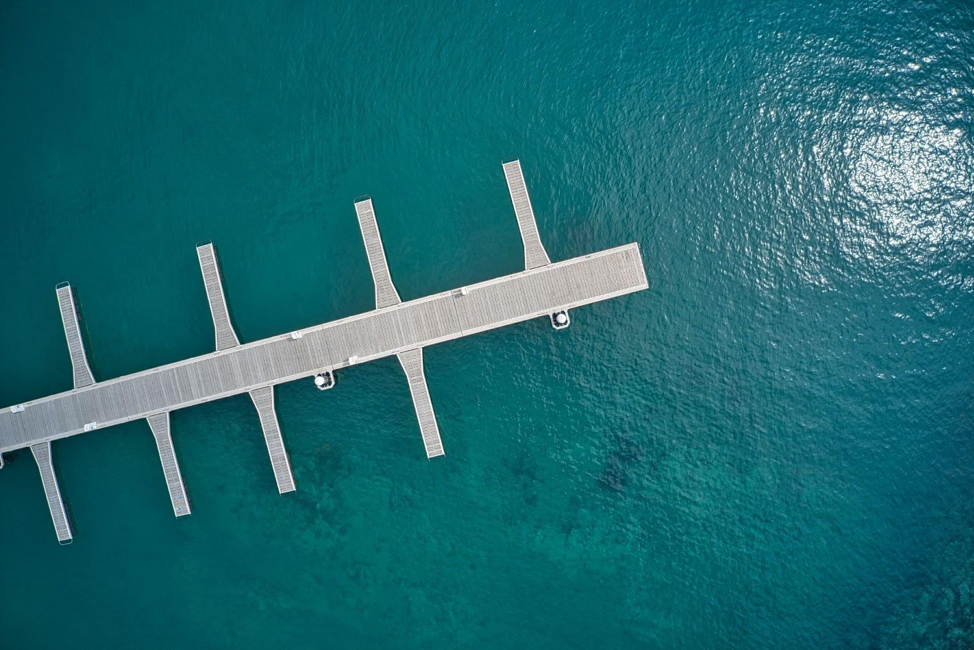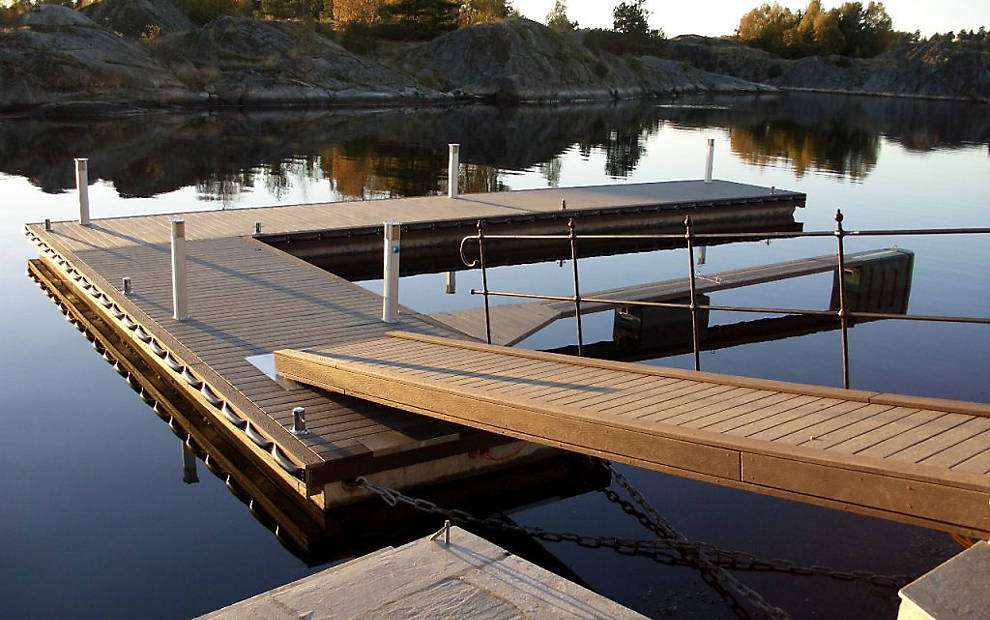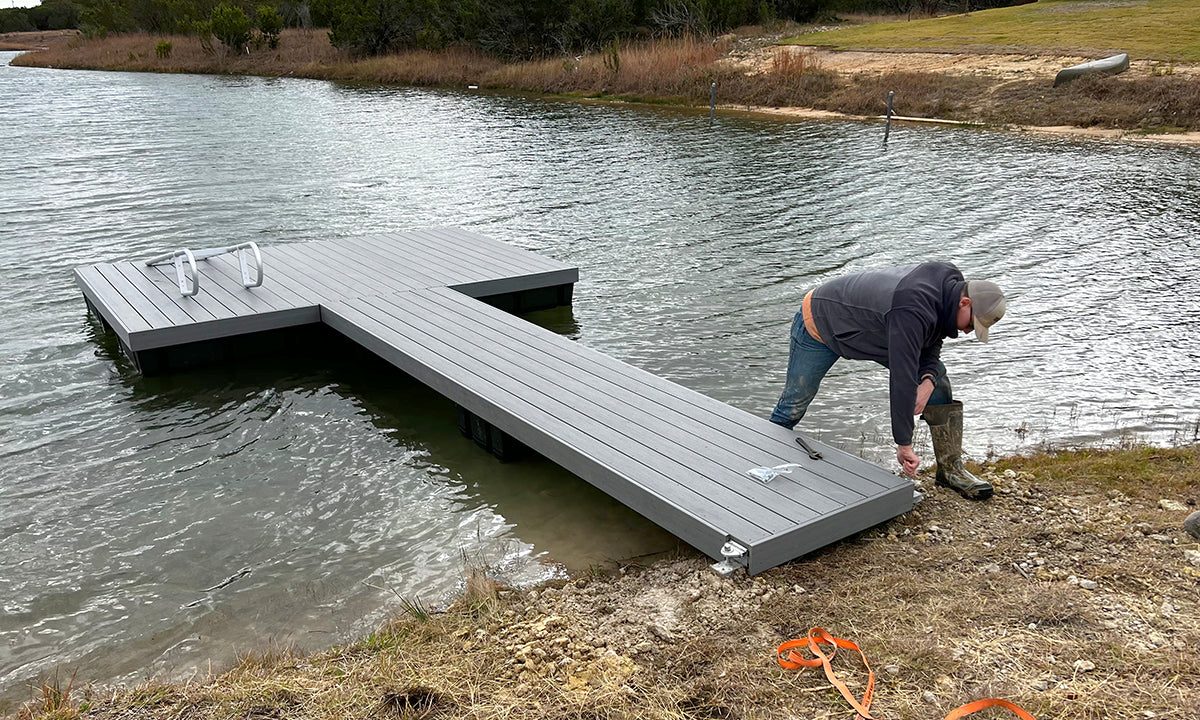The Ultimate Guide to Selecting the Finest Floating Docks
Selecting the optimal floating dock calls for an extensive understanding of different components that affect both performance and long life. Variables such as dock types, materials, and essential attributes dramatically impact your decision-making process.
Comprehending Floating Dock Kind
When selecting a floating dock, it is vital to understand the different kinds available, as each serves unique objectives and applications. Floating docks mainly come under 3 groups: modular, stationary, and pontoon docks.
Modular docks are made up of individual sections that can be quickly constructed or reconfigured, making them optimal for transforming water degrees and varied usages, such as entertainment tasks or business procedures. Their versatility permits modification based on certain requirements.

Pontoon docks are identified by their buoyant framework, commonly composed of several pontoons that give stability and support. They are particularly appropriate for larger vessels and are commonly utilized in marinas or for beachfront buildings. Comprehending these kinds help in selecting one of the most suitable floating dock to meet details needs, making sure optimal functionality and safety and security.
Key Products for Sturdiness
Picking the best products for floating docks substantially influences their resilience and durability. One of the most common materials consist of timber, plastic, steel, and composite products, each offering distinct advantages and restrictions.
Wood, usually favored for its aesthetic charm, needs routine upkeep to hold up against moisture and decay. Pressure-treated lumber can improve resistance to rot, but it may still be vulnerable to insects and weathering.

Plastic docks, made from high-density polyethylene (HDPE), are immune to rust, UV radiation, and effect, making them a popular selection for coastal environments. Their light-weight nature likewise facilitates simple installation and moving.
Steel docks, typically built from light weight aluminum or galvanized steel, offer extraordinary toughness and toughness. They are immune to deterioration, specifically when dealt with, yet might call for extra insulation to avoid warmth buildup in hot environments.
Composite materials, incorporating wood fibers and plastics, supply the benefits of both wood and plastic, resisting dampness and fading while needing marginal maintenance. - floating dock company
Ultimately, the option of products ought to line up with environmental problems, planned usage, and upkeep preferences to make sure the floating dock remains practical and aesthetically pleasing gradually.
Important Functions to Take Into Consideration
While the choice of materials is critical, considering crucial functions for floating docks is equally essential to make certain optimal performance and individual complete satisfaction. One key function to analyze is the dock's buoyancy capacity, which identifies just how much weight it try this site can support without submerging. floating dock builder. This is essential for accommodating watercrafts, personal boat, and also entertainment tasks
Furthermore, portability is a considerable consideration. Depending on your requirements, you might desire a dock that is very easy to transfer and take apart, especially if you intend to relocate it seasonally. Stability is an additional important function; a well-designed floating dock needs to lessen movement created by wind and water currents, supplying a protected platform for individuals.
Security functions, such as non-slip surfaces and rounded sides, are likewise critical to stop crashes, especially in wet problems. Furthermore, consider the schedule of accessories, such as cleats, bumpers, and ladders, which can boost the functionality of your dock.
Installation and Upkeep Tips
Establishing up and maintaining a drifting dock calls for mindful preparation and attention to information to guarantee its longevity and optimal performance. Begin by selecting an appropriate area that minimizes direct exposure to strong currents and waves, which can trigger wear and tear. Make certain that the water depth suffices for the dock's height which it is anchored firmly to prevent activity.
Throughout installment, comply with the producer's standards closely, as inappropriate setting up can compromise stability. Usage high-grade products immune to corrosion, such as light weight aluminum or dealt with wood, to boost resilience. Regularly inspect all elements, consisting of floats, connectors, and anchoring systems, for signs of damages or wear.
Upkeep is important for extending the life of your dock. Tidy the surfaces occasionally to avoid algae buildup and look for any type of loosened fittings that might call for tightening up. Guarantee they continue to be undamaged and totally free from leaks if your dock utilizes flotation tools. Additionally, think about using safety finishings to wood components to minimize weathering impacts. By sticking to these original site installation and maintenance ideas, you can take pleasure in a trustworthy and useful floating dock for many years to find.
Budgeting for Your Dock
Budgeting for your dock is a critical step that can dramatically influence your total complete satisfaction and investment in a beachfront property. Developing a clear spending plan aids you navigate the various options available and ensures you make informed choices that line up with your financial capabilities.
Begin by identifying the size and design of the dock you need, as these variables will substantially influence the price. Floating docks can vary dramatically in price, relying on materials, buoyancy, and features like ramps and accessories. Study different manufacturers and suppliers to contrast costs and recognize the market worth.
Along with initial costs, think about recurring expenses such as maintenance, insurance, and potential repair work. Allot funds for these recurring expenses to prevent surprises down the line. It's also prudent to budget plan for any kind of essential authorizations or examinations, which might be required by local regulations.
Lastly, bear in mind the possible roi. A well-planned dock can enhance your property's value and appeal, supplying a favorable financial impact in the lengthy term. By budgeting properly, you can make certain that your dock meets your requirements without endangering your financial stability.
Conclusion
In verdict, choosing the ideal floating dock requires a thorough analysis of numerous aspects, consisting of dock types, materials, important features, and installment procedures. Cautious factor to consider of financial constraints will further guarantee a sound investment.

While the selection of products is vital, taking into consideration necessary attributes for floating docks is equally vital to make sure optimal efficiency and user fulfillment.Establishing up and preserving a drifting dock requires careful preparation and interest to information to guarantee its longevity and optimum performance. Floating docks can differ significantly in rate, depending on materials, buoyancy, and functions like accessories and ramps.In verdict, picking the suitable floating dock necessitates an extensive assessment of different variables, consisting of dock types, materials, vital features, and installation procedures.